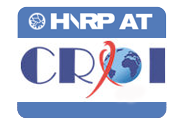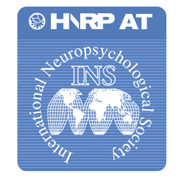Josue Perez-Santiago Awarded CROI 2012 Young Investigator Award Using CNTN Data
The 19th Conference on Retroviruses and Opportunistic Infections in Seattle, Washington on March 5-8, 2012 awards travel expenses to promising young investigators. Josue Perez-Santiago becomes the second HNRP affiliated investigator to win such an award (Dr. David Croteau previously won this award). The winning abstract is included below and utilized California NeuroAIDS Tissue Network (CNTN) study generated data. The results suggest that methylation profiles could be used as a prognostic as well as a diagnostic tool for neurocognitive decline in HIV infection. DNA methylation may provide a rich source for biomarker development since, in addition to the repression of promoter activity, methylation can also indicate the repression of distal regulatory elements.
Perez-Santiago J, Plongthongkum N, Letendre S, Ellis R, Gouaux B, Moore D, LeBlanc S, Rajagopal N, Zhang K, Woelk C. (2012). DNA methylation correlates with neurological decline in HIV-infected individuals.
POZ Magazine Highlights HNRP Research Study on Lipodystrophy and Cognitive Functioning
HNRP investigators led by J. A. McCutchan published data from the CHARTER Study showing that lipodystrophy-related waistline increases adversely affected cognition in HIV infected patients but that overall weight gain conferred a protective effect against cognitive decline.
The analysis found four factors associated with cognitive impairment (older age, a longer time living with HIV, diabetes (notably in those older than 55), increased waist circumference) but that overall body mass index (BMI) was not associated with an increased risk of cognitive impairment. In fact, it was associated with a 30 percent lower risk of neurocognitive impairment in the study.
To Read Full Article Click Here.
To Cite:
McCutchan JA, Marquie-Beck JA, FitzSimons CA, Letendre SL, Ellis RJ, Heaton RK, Wolfson T, Rosario D, Alexander TJ, Marra C, Ances BM, Grant I, for the CHARTER Group. (2012). Role of obesity, metabolic variables, and diabetes in HIV-associated neurocognitive disorder. Neurology, 78 (7): 485-492 .
La Jolla Light Article Features Dr. Igor Grant and the TMARC Center
The article "AIDS: 30 Years of progress and promise assisted by La Jolla researchers" includes references to several La Jolla-based UCSD HIV/AIDS researchers and research programs, including Dr. Igor Grant and the Translational Methamphetamine AIDS Research center (TMARC), with general descriptions of the state of AIDS research 30 years into the epidemic.
To Cite:
Friedmann, L. (2011, Nov. 30). AIDS: 30 years of progress and promise assisted by La Jolla researchers. La Jolla Light.
The AIDS BEACON Features the HNRC Study Publication "Intraindividual Variability in HIV Infection: Evidence for Greater Neurocognitive Dispersion in Older HIV Seropositive Adults"
Results of this study showed that inconsistency in performing mental tasks was significantly worse in older HIV-positive participants compared to both younger HIV-positive participants and older HIV-negative study participants. The authors hypothesized that the problems are due to accelerated aging in the HIV-positive population, which has been observed in other studies.
To Cite:
Morgan EE, Woods SP, Delano-Wood L, Bondi MW, Grant I. (2011). Intraindividual variability in HIV infection: Evidence for greater neurocognitive dispersion in older HIV seropositive adults. Neuropsychology, 25(5), 645-54. PMID: 21574712 PMCID: 3158302
Link to Abstract
The AIDS BEACON Features the CHARTER Publication "CD4 nadir is a predictor of HIV neurocognitive impairment in the era of combination antiretroviral therapy"
In this study, the authors evaluated the relationship between cognitive impairment and nadir CD4 count in 1,525 HIV patients across the U.S. Results from a recent study indicate that the lowest CD4 count measured after HIV infection, called the nadir CD4 count, is a predictor of brain impairment in people with HIV. In particular, lower nadir CD4 counts were associated with increased likelihood of cognitive impairment.
To Cite:
Ellis RJ, Badiee J, Vaida F, Letendre S, Heaton RK, Clifford D, Collier AC, Gelman B, McArthur J, Morgello S, McCutchan JA, Grant I for the CHARTER Group. (2011). Nadir CD4 is a predictor of HIV neurocognitive impairment in the era of combination antiretroviral therapy. 25(14), 1747-1751.
Link to Abstract






